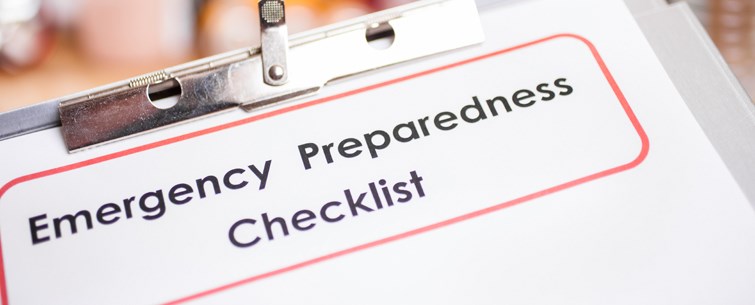Help if your business has been hit by a storm
If your business has been affected by severe weather, here’s a checklist of actions that could help you get back on track.

1. Make sure everyone is safe
When a storm hits, the first priority is to make sure that you and all employees and customers are safe – ideally, indoors.
2. Wait until it is safe to act
After the storm has passed, only then is it safe to assess the damage. But be aware that the aftermath of a storm can be a dangerous environment. There could still be falling trees or masonry, damaged gas pipes or flooding – so be alert.
3. Secure the premises
Lock windows and doors and set the alarm, if you have one.You may also need to switch off the gas or electricity supplies to make sure they are safe – but only attempt this when you are sure it is safe to do so.
4. Contact your insurer as soon as you can
They will almost certainly have a 24-hour emergency helpline, where you will be able to get advice on next steps and arrange for repairs to be made. If you hold your buildings contents and business interruption policies with different insurers, remember that you may need to speak to more than one company.
5. Take photographs of all the damage
The more the better. This will help in the claims process.
6. Arrange any emergency repairs?
If you need to do this to stop any damage getting worse or to make the premises safe and secure, be sure to let your insurer know as soon as you can. Keep any receipts as these will form part of your claim.
7. Don't rush to throw away damaged items
If possible, keep anything that's not a danger to health, as these may be able to be repaired or restored. Your insurer may also need to see the items before they agree to pay for any damage.
8. Secure your stock and any equipment if possible
If the storm has exposed any of your stock or equipment to potential damage, try to move it to a safe dry location.
9. Check with environmental health before you salvage any stock
If you're unsure whether damage to any stock – especially food items – presents a health and safety risk, contact your local Environmental Health Officer. They will inspect your goods and, if they are safe to sell, they'll issue you with a certificate.
10. Check if you are covered for lost earnings
If your business is unable to operate because of the damage, and you have business interruption insurance, you should be able to make a claim for any losses incurred. You may also be able to claim for additional costs resulting from this such as legal or accountancy fees. Again, your insurer will be able to advise you on what information you need to provide when making the claim.
11. Let premises dry out before redecorating
If a large amount of water has entered the building, be aware that it might take weeks or more for it to fully dry. Difficult though it might be, don't be in a rush to redecorate. Most insurers can give you advice on how to get your premises back up to speed as soon as possible.
If you’re a Swinton customer and need to make a claim, visit swinton.co.uk/business/contact Or, if you want to know more about our business insurance policies visit swinton.co.uk/business
Published: 8th February 2017
More storm guides

Storm damage and your business
Storms can prove costly to businesses for a variety of reasons. They can damage buildings and contents resulting in repair or replacement costs and can temporarily prevent your business from operating.

How to insure your business against storm damage
Severe weather can have a big impact on businesses, leading to lost earnings and damaged property, equipment and stock.

Preparing your business for a storm
Bad weather causes significant cost to UK businesses every year, and the most extreme weather events – especially powerful windstorms – can cause extensive damage to buildings and other property.